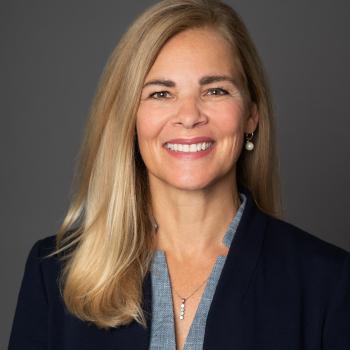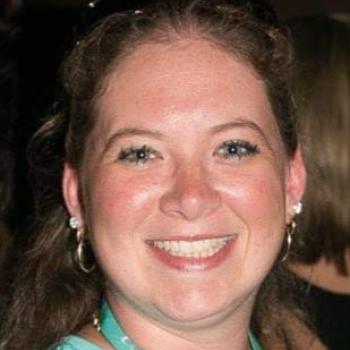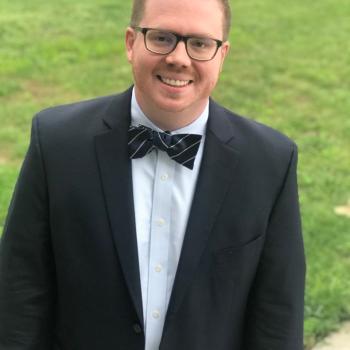Following the completion of this course, learners should be able to:
- Understand how stigma and bias impact health care delivery.
- Describe how to apply Trauma-Informed Care principles when caring for pregnant women impacted by substance use disorder.'
- Identify 2-3 practice changes you will make.


Annie Lewis-O'Connor, PhD, NP-BC, MPH, FAAN, DF-LAFN, DF-AFN is a dually Board Certified Pediatric and Women’s Health Nurse Practitioner. She is the founder and director of the C.A.R.E Clinic (Caring Approach to Resilience & Empowerment) and is co-chair of the Mass General Brigham Trauma-informed Care Initiative. The clinic is committed to providing patient centered and trauma-informed health care to people who have experienced individual, interpersonal and collective trauma. Dr. Lewis-O’Connor addresses violence from four pillars: Research, Policy, Education, and Clinical practice. Dr. Lewis-O’Connor is published in peer-reviewed journals and academic books on the topic of violence against women and children, trauma-informed care, and the effects of trauma, violence and abuse on health. Her current research is focused on measuring Trauma-Informed Care models of care in adult health care settings and exploration of best ‘screening’ (inquiry) methods for trauma, violence and abuse. Dr. Lewis-O’Connor was a Clinical Scholar with the Robert Wood Johnson Foundation (2018-2021) focusing on health care leadership using a health equity lens. Her current funding is exploring the return on investment when TIC models are utilized, trauma inquiry and use of trauma-informed care plans. She served as chair of the National Health Collaborative on Violence and Abuse advancing policy and clinical practice for survivors of violence and abuse. Since 2010 she has served on the Executive Board of Casa Myrna Vasquez, the oldest and longest standing shelter in Mass for women and children. She received her Master’s in Nursing from Simmons College in Boston, a Master’s in Public Health from Boston University and PhD from Boston College.
Following the completion of this course, learners should be able to:
- Describe the historical context and current state of smokefree legislation related to maternal and neonatal health at the state, national, and international levels.
- Compare and contrast the potential effects of comprehensive smokefree municipal policy compared to moderate to weak or no policy on preterm birth rates in Kentucky.
- Identify strategies to promote comprehensive smokefree policy in their communities.


Kristin Ashford is a professor at the University of Kentucky College of Nursing where she serves as the associate dean of Undergraduate Faculty and Interprofessional Education. She has recently completed her first year in Washington DC as a RWJF health policy fellow at the National Academy of Medicine and the U.S Committee on Energy and Commerce, Health Subcommittee. Dr. Ashford received her BS at Washburn University in Kansas and completed her training as a board-certified women’s health nurse practitioner at the University of Louisville. She further completed her PhD and NIH postdoctoral fellowship, Building Interprofessional Research Careers in Women’s Health (BIRWCH), at the University of Kentucky.

Dr. Lisa M. Blair received her PhD in Nursing with an interdisciplinary graduate specialization in Quantitative Research Methods at The Ohio State University. She is a registered nurse with clinical experience working with critically and chronically ill infants. Her postdoctoral training focused on data science and the impact of perinatal substance use on neonatal and child health and development. Her research and career development have been well funded by the National Institute for Nursing Research, National Institute of Minority Health and Health Disparities, and the National Institute on Drug Abuse through two institutional training grants, two intramural research training awards, and an individual predoctoral fellowship. In her current role as an Assistant Professor at Wayne State University College of Nursing, Dr. Blair employs her data science expertise and health disparities focus to examine child outcomes in health and development after prenatal exposures to tobacco, electronic nicotine delivery systems, cannabis, and opioids.
This course will provide an overview of the Plan of Safe Care Program in Kentucky.
Learning Objectives
- Examine the guiding principles and values inherent to a Recovery Oriented System of Care (ROSC).
- Discuss Best Practices for Pregnant and Parenting Families with Substance Use Disorders across community-based health and social service systems.
- Introduce the Wrap-around model for cross sector support of Pregnant and Parenting Families with SUD.


Maggie Schroeder is currently the Program Manager for the Adult Substance Use Treatment and Recovery Services Branch at the Division of Behavioral Health, Developmental & Intellectual Disabilities for the State of Kentucky. Ms. Schroeder has Master’s Degrees in Clinical Psychology and Political Science and is a Licensed Clinical Alcohol and Drug Counselor (LCADC). She has over 30 years of experience in providing behavioral health and substance abuse services to individuals and their families including case management and therapeutic interventions services as well as providing clinical and administrative supervision.
"Great presentation"
Learning Objectives
By the end of this course, learners will be able to:
- Identify the 4 types of stigma and the impact of language.
- Identify considerations for delivery and immediate postpartum periods.
- Understand Adverse Childhood Experiences and how they effect our moms.
- Understand what a recovery-oriented system of care is.
- Understand the KY Moms MATR program and how it can enhance existing services of pregnant and postpartum individuals.


Katie Stratton, MS is currently a Program Administrator at the Kentucky Department of Behavioral Health, Developmental and Intellectual Disabilities in the Adult Substance Use Treatment and Recovery Services Branch for KY Moms Maternal Assistance Towards Recovery, a program for pregnant and postpartum individuals with substance use concerns. She is a 2009 Graduate of Capella University with a Masters Degree in Clinical Psychology, a 2001 Graduate of Eastern Kentucky University with a Bachelors of Science Degree in Child and Family Studies with a minor in Women’s Studies. She collaborates with several agencies within Kentucky working to assist in creating and establishing a System of Care for women with substance use concerns and their families. Before her involvement with DBHDID, Katie was a child and adolescent therapist licensed as an LPCA in a Psychiatric Residential Treatment Facility for almost 5 years and an outpatient therapist for 2 years. There she was able to gain insight into the effects of Adverse Childhood Experiences (ACE) and how ACE scores effect a person’s development and functionality in various environments. In her spare time, she is a youth archery coach for a Scholastic 3D Archery club in Lawrenceburg, KY.
" I have a better understanding of how ACEs can affect our population"
This course will learn about data sources that inform resources and programs aimed at improving health for Kentucky children.
Learning Objectives
- Learner will identify prominent risks to the health and well-being of Kentucky children.
- Learner will list and describe programs offered through the Cabinet for Health and Family Services designed to address specific risks to the health and well-being of Kentucky children.
- Learner will gain an understanding of the methodological sources that inform the development, design, management, and evaluation of programs that improve child health and well-being in Kentucky.


Dr. Matthew T. Walton, PhD, MSSW is the lead researcher in the Office of Health Data and Analytics within the Kentucky Cabinet for Health and Family Services. The Office of Health Data and Analytics is a team of data analysts, database experts, statisticians, and researchers that serve the Cabinet by studying policy-relevant questions, with the aim of advancing health and wellness in Kentucky. In this role, he supports the health and social science research activities of the Cabinet; both by conducting sponsored research and data science projects as well as supporting the work of faculty researchers in Kentucky’s university community. Prior to initiating his career as a researcher, Dr. Walton worked as a medical social worker in a variety of healthcare settings, including an academic medical center, psychiatric settings, and an addiction treatment center. His particular research interests sit at the intersection of social work, child welfare, economics, and public health. Specifically, he is interested in helping to develop new insights to guide policy and practice to promote the safety and wellness of children and families; including investigations of social and health policy, and interventions to assist families that are simultaneously impacted by substance use disorders and cases of child maltreatment.